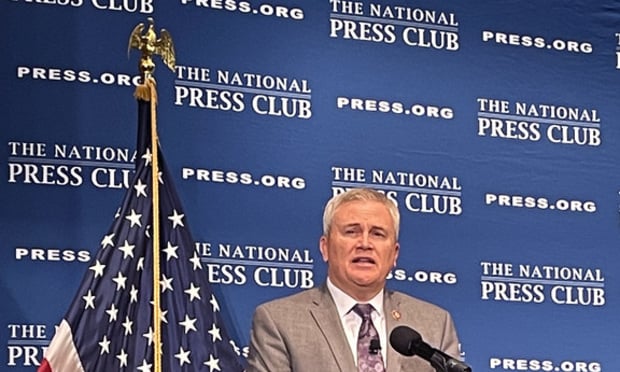Senate Finance Committee Chairman Ron Wyden, D-Ore., and six Democratic colleagues introduced on July 22 the Encouraging Americans to Save Act, legislation to help working and middle-class families save for retirement, including a 50% government match on contributions of up to $2,000 per year made to 401(k)-type plans and IRAs.
The Encouraging Americans to Save Act restructures the existing, nonrefundable saver's credit into a refundable, government matching contribution of up to $1,000 a year for middle- and moderate-income workers who save through 401(k)-type plans or IRAs. Structuring the payment as a matching contribution will make it available to more Americans, Wyden says.
Recommended For You
The legislation also includes a COVID-19 recovery bonus credit that provides up to $5,000 in additional government matching contributions for the first $10,000 saved during a five-year period beginning in 2022, Wyden explained.
Currently, a couple earning $39,500 or less can receive a tax credit of 50% of the amount, up to $2,000, saved in retirement accounts. The credit then phases out, ending completely at income of $66,000 per couple or $33,000 per individual.
Wyden's bill would replace the current saver's credit with a 50% government match on contributions of up to $2,000 per year made to 401(k)-type plans and IRAs by individuals with income up to $32,500 and couples with income up to $65,000.
The amount of the match would phase out over the next $10,000 of income for individuals and $20,000 for couples. A $100 minimum credit would be provided if the phase-out rules would otherwise result in a credit amount between one cent and $100. These income limits and the cap on the eligible contribution amount would be indexed.
The match would be claimed on the individual's income tax return and deposited directly into a worker's IRA, 401(k), or similar account using the account number provided by the worker. If the individual provides an erroneous account number or none at all, the match would be deposited automatically into a Roth R-bond account.
The refundable credit would also be available for contributions made to ABLE Accounts, and would be deposited in those accounts, according to a summary of the bill.
An R-bond account is an IRA maintained by the U.S. Treasury Department. The R-bond program is similar to the myRA program that was established by the Obama administration. Amounts saved in R-bond accounts are invested in Treasury bonds, the summary said.
Wyden's legislation would also enhance the saver's credit by making the full 50% credit rate available to couples earning up to $65,000 per year ($32,500 for single taxpayers) and would require that the credit be directly contributed into the saver's retirement plan or IRA.
The bill is co-sponsored by by Sens. Michael Bennet, D-Colo.; Bob Casey, D-Pa.; Dick Durbin, D-Ill.; Amy Klobuchar, D-Minn.; Bob Menendez, D-N.J.; and Patty Murray, D-Wash.
© 2025 ALM Global, LLC, All Rights Reserved. Request academic re-use from www.copyright.com. All other uses, submit a request to [email protected]. For more information visit Asset & Logo Licensing.








